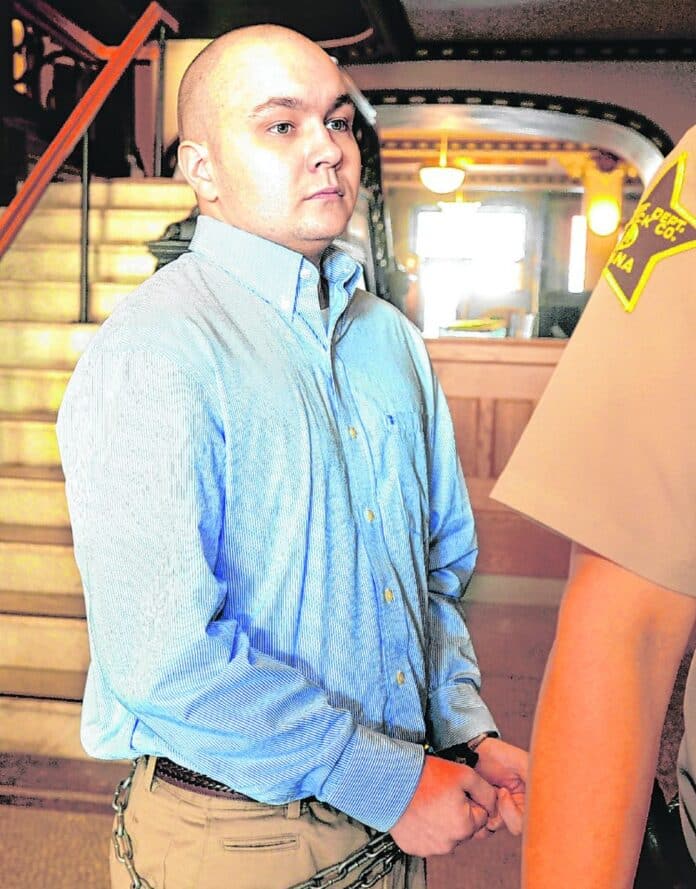
GREENFIELD — A man sentenced to 73 years for killing his friend two days before Christmas in 2012 has lost an appeal to overturn his conviction.
Colby McKnelly, 34, is now seven years into his sentence at the Wabash Valley Correctional Facility in Sullivan County. A judge convicted McKnelly of stabbing Steven Rogers Jr. 27, Indianapolis, 54 times during an altercation at a home in Greenfield on Dec. 23, 2012. McKnelly, who was injured in the fight with Rogers, claimed he acted in self-defense.
He filed a motion for post-conviction relief in March 2016, nearly three years after his conviction and 19 months after the Indiana Court of Appeals affirmed the verdict. Post-conviction relief petitions attempt to convince judges that mistakes were made during a prosecution.
McKnelly argued many mistakes were made in his case. Most of those were tied to his claim that his defense was insufficient.
But in a 27-page summary, Judge Scott Sirk of Hancock Circuit Court sided with the state on every issue brought forth in the petition, saying that McKnelly had not met the burden required by law for relief.
Marie Castetter, the county’s chief deputy prosecutor, was pleased with the ruling, which was handed down last week.
“For me, it was important to maintain the conviction that my predecessor, Tami Napier, and Detective Randy Ratliff, worked hard to secure,” said Castetter, who argued against the petition in court. Napier was chief deputy to then-Prosecutor Michael Griffin. Ratliff just retired from the Greenfield Police Department.
McKnelly’s attorneys, Rahul B. Patel and Cynthia M. Carter, had argued the state violated McKnelly’s Sixth and Fourteenth Amendment rights to “effective assistance of counsel” and cited what they said were more than a dozen examples.
The petition argued, for example, that McKnelly’s attorney had failed to disclose that his firm had represented Rogers on a previous Marion County drunken driving case.
Among other things, the petition also argued that the defense team failed to conduct a complete investigation; and did not challenge an 11-page probable cause affidavit in a fact-sensitive case involving the right to self-defense.
Sirk was unmoved by the arguments. Among the findings, Sirk said McKnelly would have to show his lawyer actively represented conflicting interests that adversely affected his performance. The mere possibility of conflict of interest is insufficient to justify reversal of conviction, the conclusion stated.
“In post-conviction relief the petitioner carries the burden of proof,” Sirk said in the conclusion. “The Court finds that Colby McKnelly has failed to carry his burden. Therefore, the law is with the State of Indiana and against the petitioner.”
McKnelly can appeal the judge’s decision.




